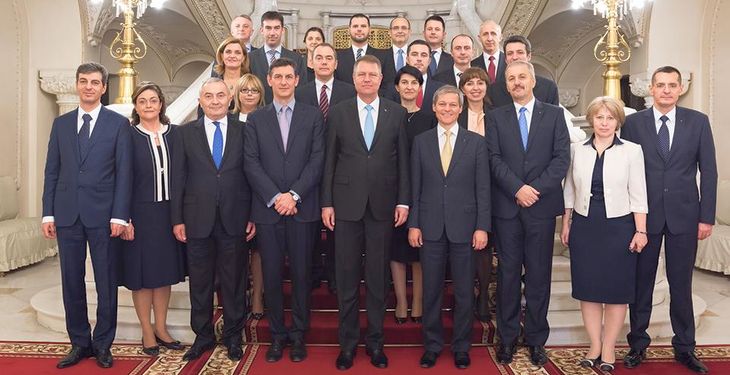With a large majority, Romanian Parliament voted for the investiture of Dacian Cioloş cabinet. It could not have been otherwise, regardless of the composition of this government built in just a few days, after the former Prime Minister Victor Ponta had unexpectedly resignated.
It was the ideal solution for preserving the political establishment. A solution that (partially) responded the desire for change expressed in the streets, but also (and especially) to the electoral calculations from the main parliamentary parties. None of these political groups was prepared to govern Romania in an election year, as this would have proposed it as a target for all the popular discontent and would transform it into the main lightning rod for all the failures of government the corruption, incompetence and irresponsibility of the past few years have already primed.
All ministers appointed, the Prime Minister included, were overly nice to the politicians in Parliament – those they have been summoned to sideline. Because they saw it clearly: this is a national unity government, barely concealed under the label of “government of technocrats”.
Holidays in hell
Eventually, it is to be praised the disponbility such a large number of experts proved by responding to the urgent appeal launched by Dacian Cioloş. There are many people with good reputation in institutions where, especially when compared to local practices, we tend to identify professionalism, vision, discipline – EBRD, IMF, European Commission etc. People like Dacian Cioloş, Anca Paliu, Aura Răducu or Raluca Prună have decided to pause for a while their predictable career paths, their commitments to family, to chiefs, subordinates, and project partners, and also to give up the comfort of living outside the Romanian society.
Why? Being part of a national government it is a worthy episode in any CV, an experience that often opens new opportunities at the highest levels of transnational bureaucracies. Furthermore, we can not simply deny any sense of duty these professionals felt they had towards Romania. And they also may have some hopes that their involvement might change things for the better in the central administration in Bucharest. In addition, these short mandates – for less than 12 months – are certainly small vacation from the humdrum work of such senior officials in the mentioned institutions.
A holiday in hell, as already indicated the two-day parliamentary hearings in which designated ministers have met for the first time the insistent attention from so many and such diverse interest groups. This treatment will continue and it will certainly test both the resilience of many of the new ministers and the good reputation they have now.
Doomed to disappoint
Regardless of their good intentions, these ministers are doomed to disappoint. The expectations placed in them are unreasonably high. They are heading into obstacles that will come from the institutional inertia, and also from traps and ambushes in which political parties will lure them. Somehow, this is something that President Klaus Johannis knows too well: cabinet Cioloş is welcomed as the lesser evil when compared with the destructive potential of a PSD-UNPR-ALDE government, in an election year. The simple existence of this cabinet is already a victory for those who asked for a change of attitudes and practices in government.
Will Cioloş cabinet manage to change anything decisive in the functioning of the Romanian administration, something that will still be there when the parties will come back in command? Unlikely. And the “street” and “Facebook” will have to maintain their pressure not only on the government, but also on the political parties in order to compel them to improve as much as possible their linings of politicians proposed for the 2016 elections.

